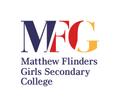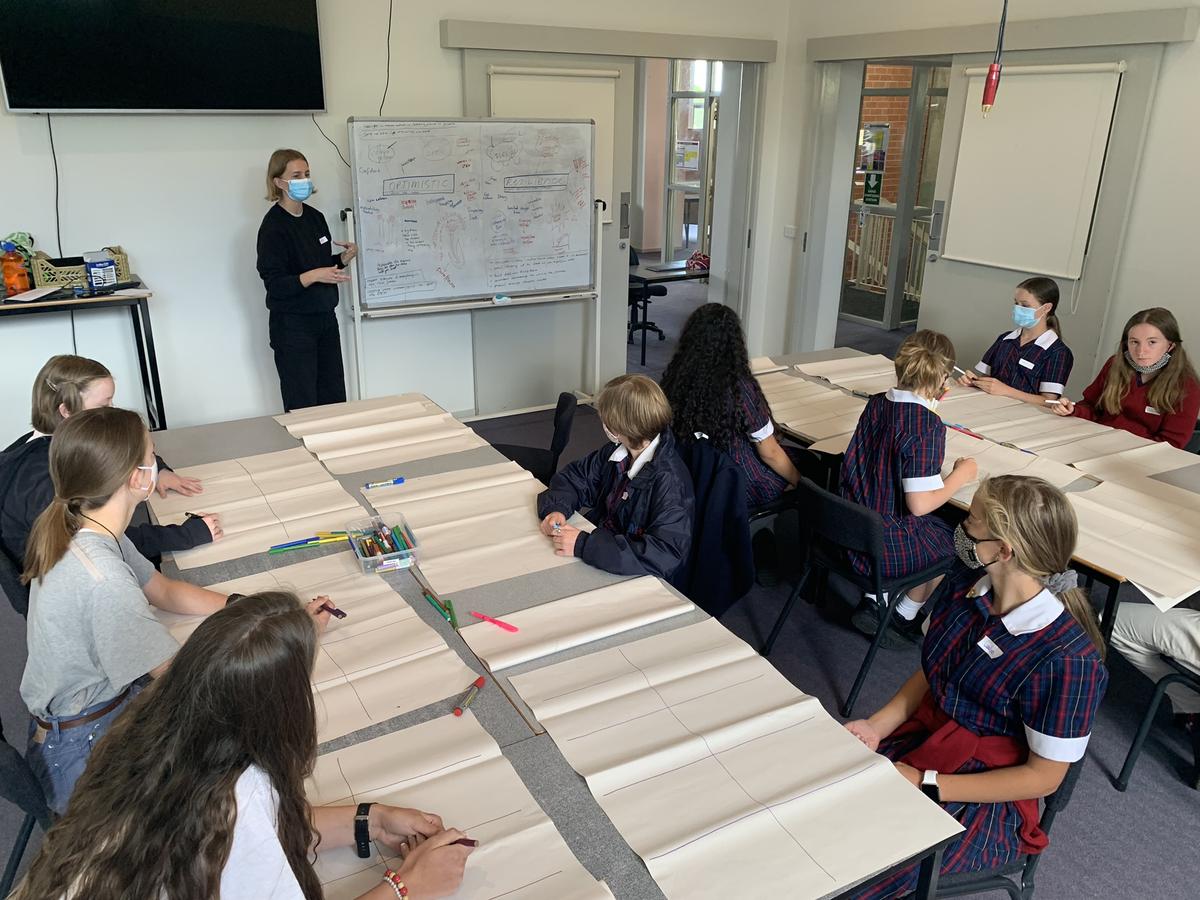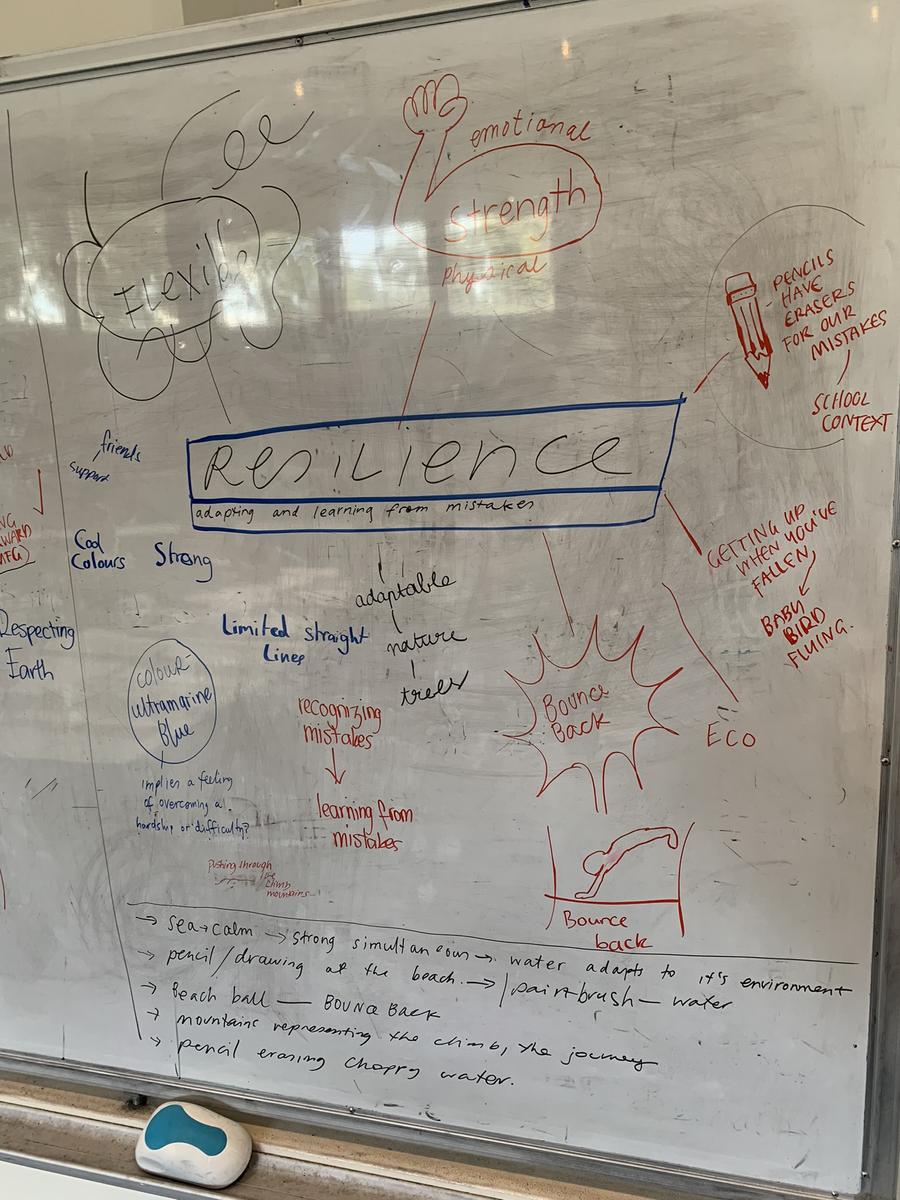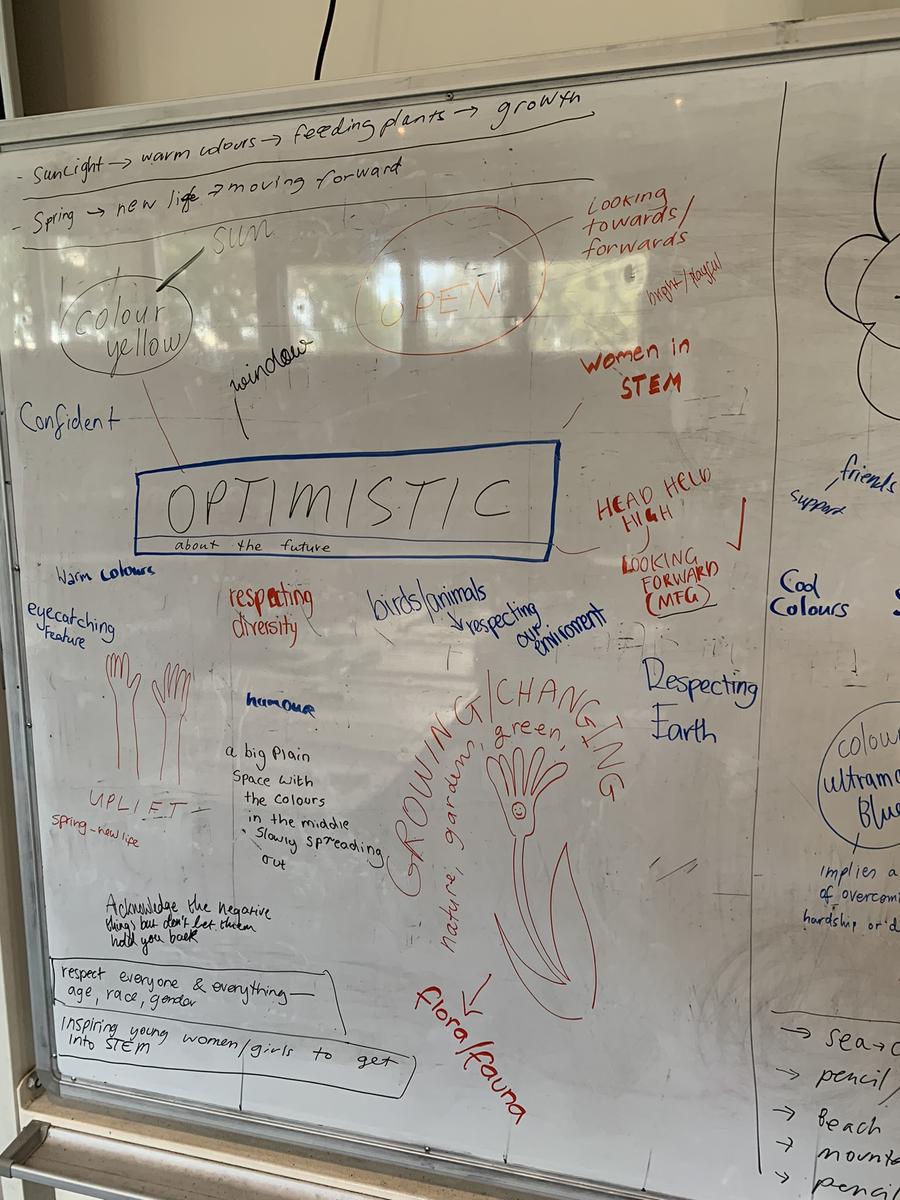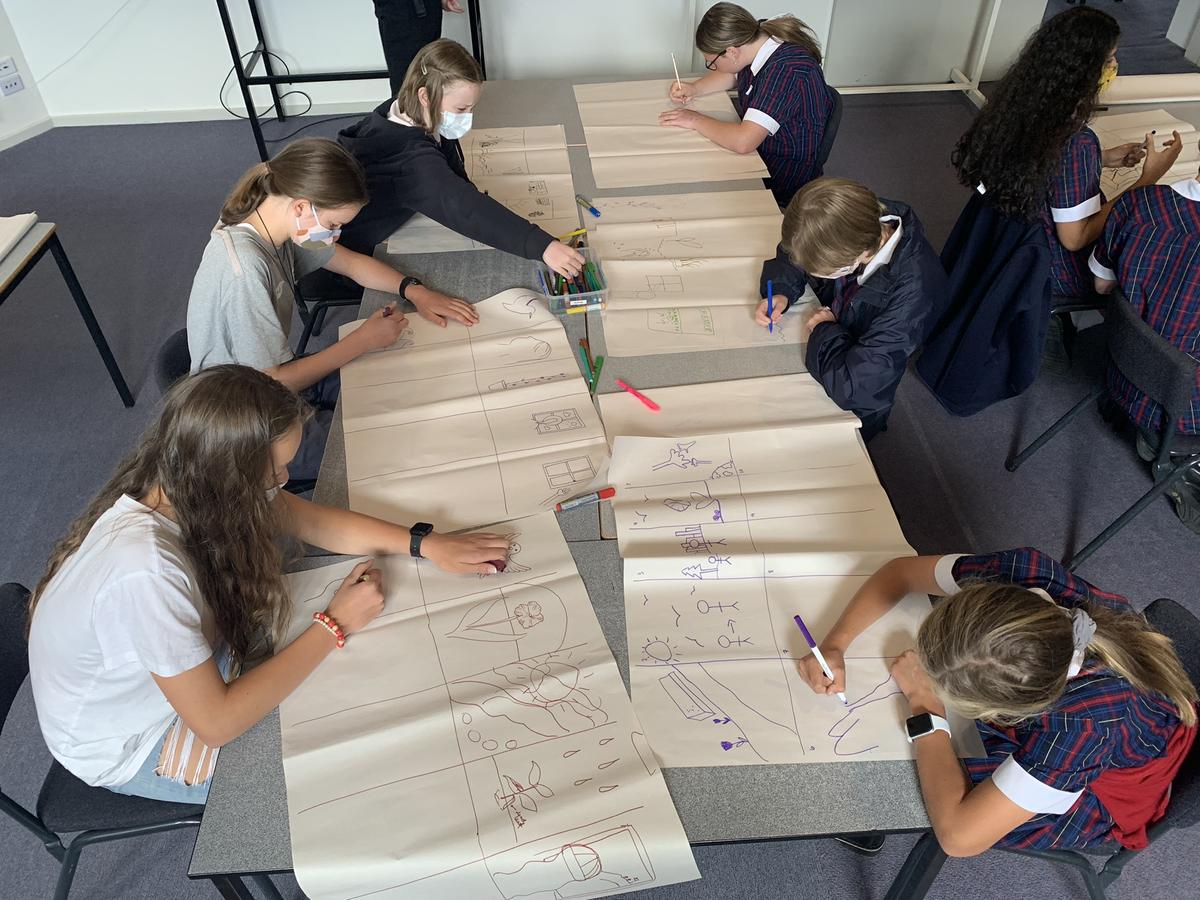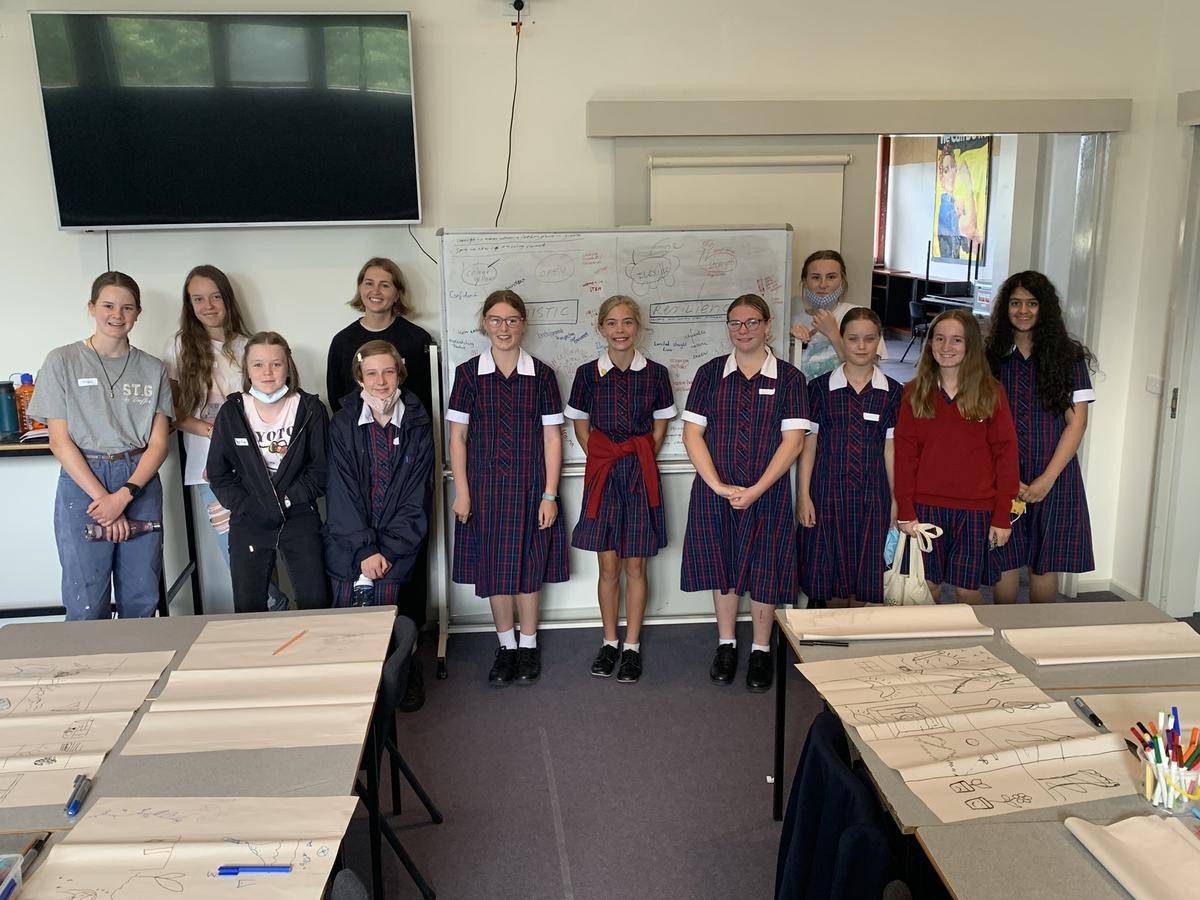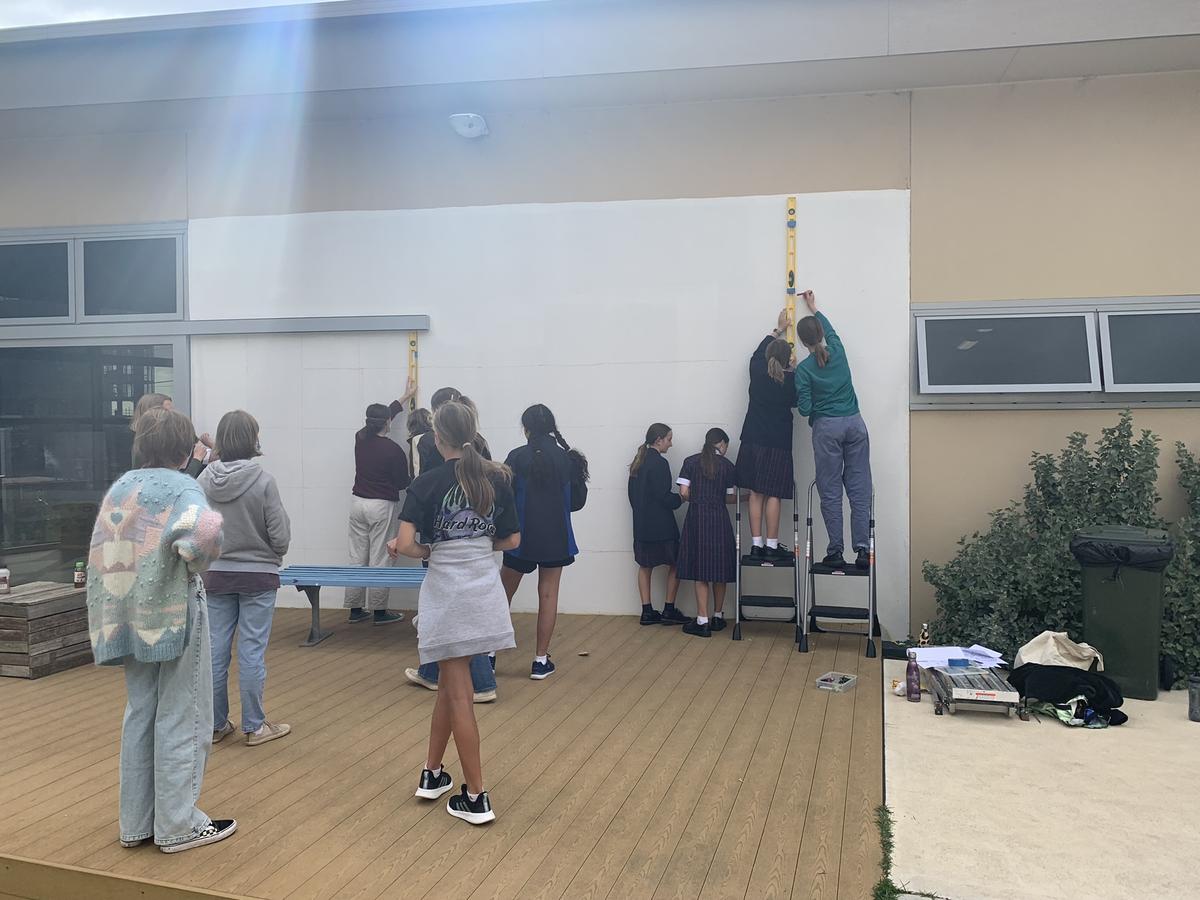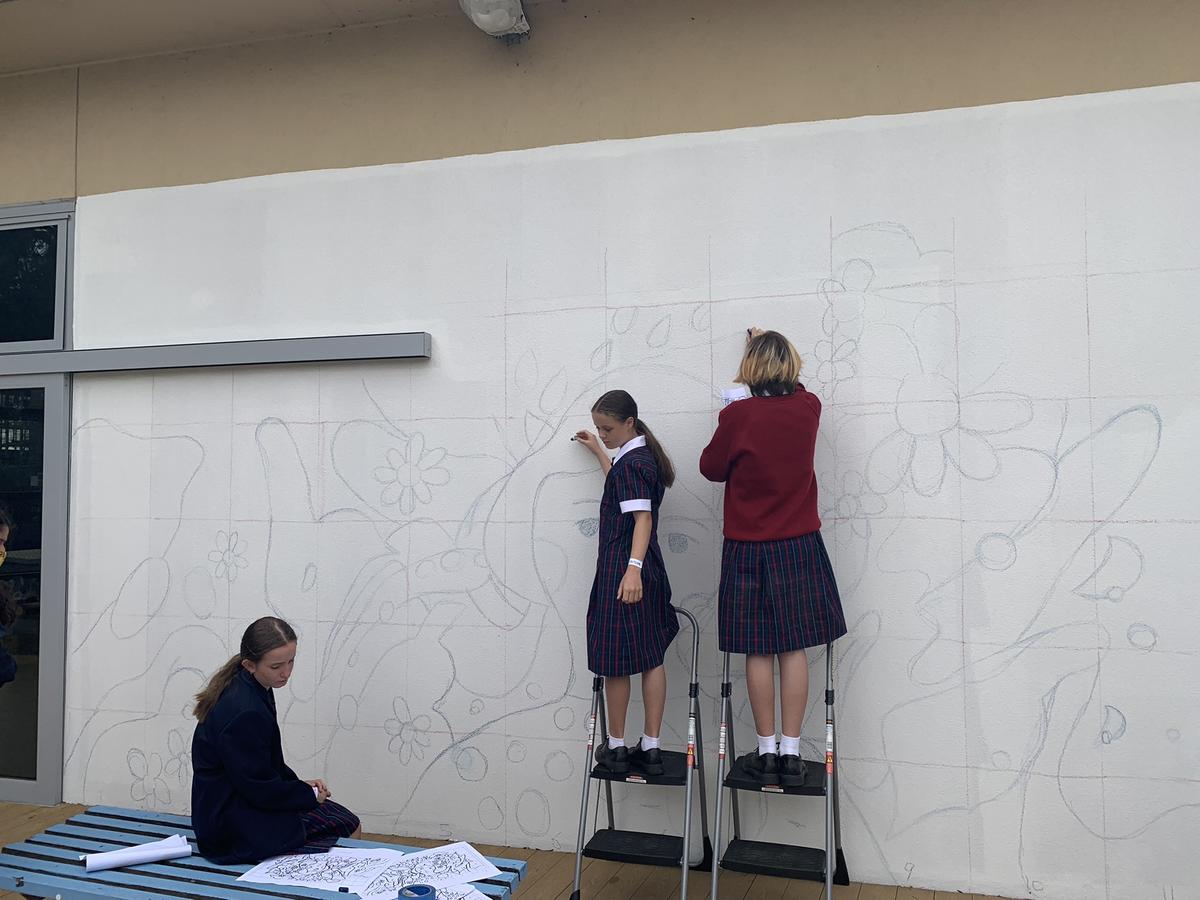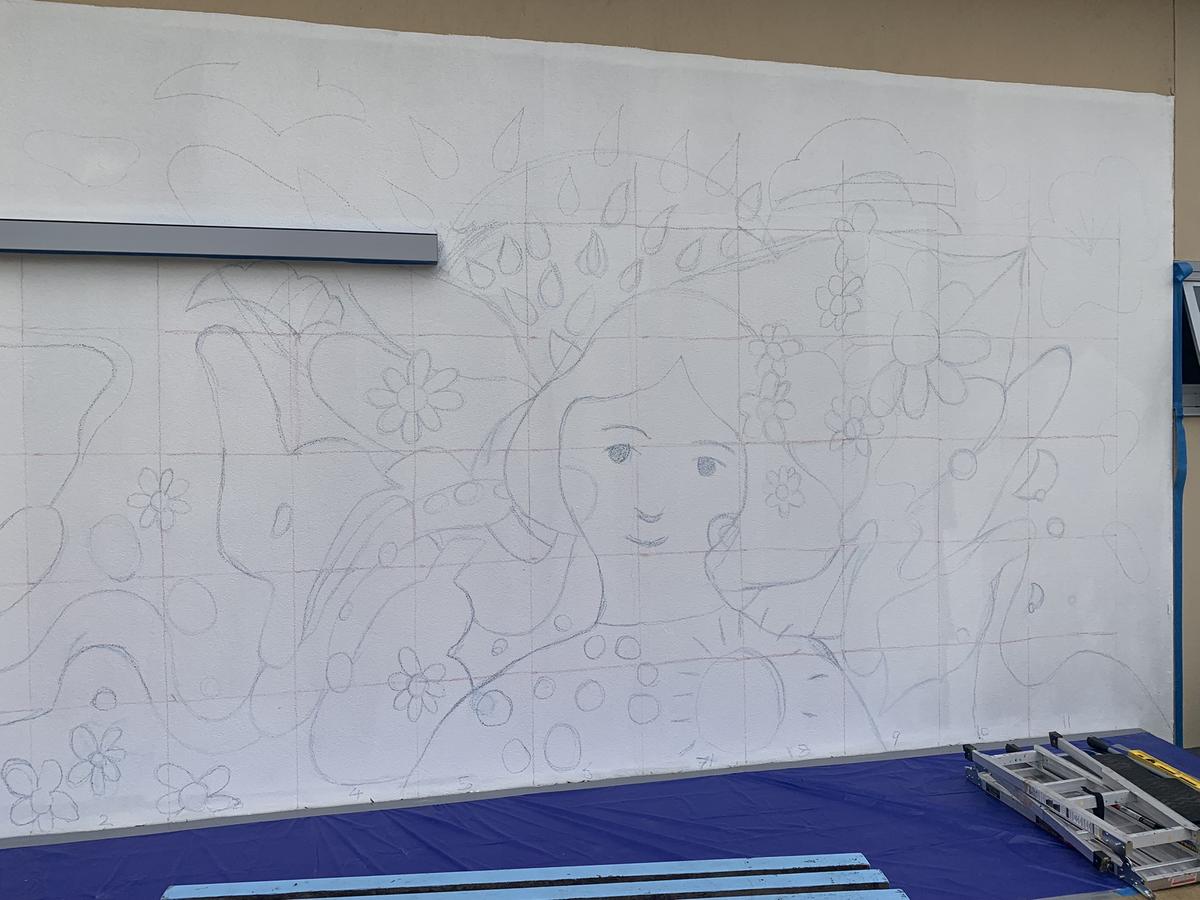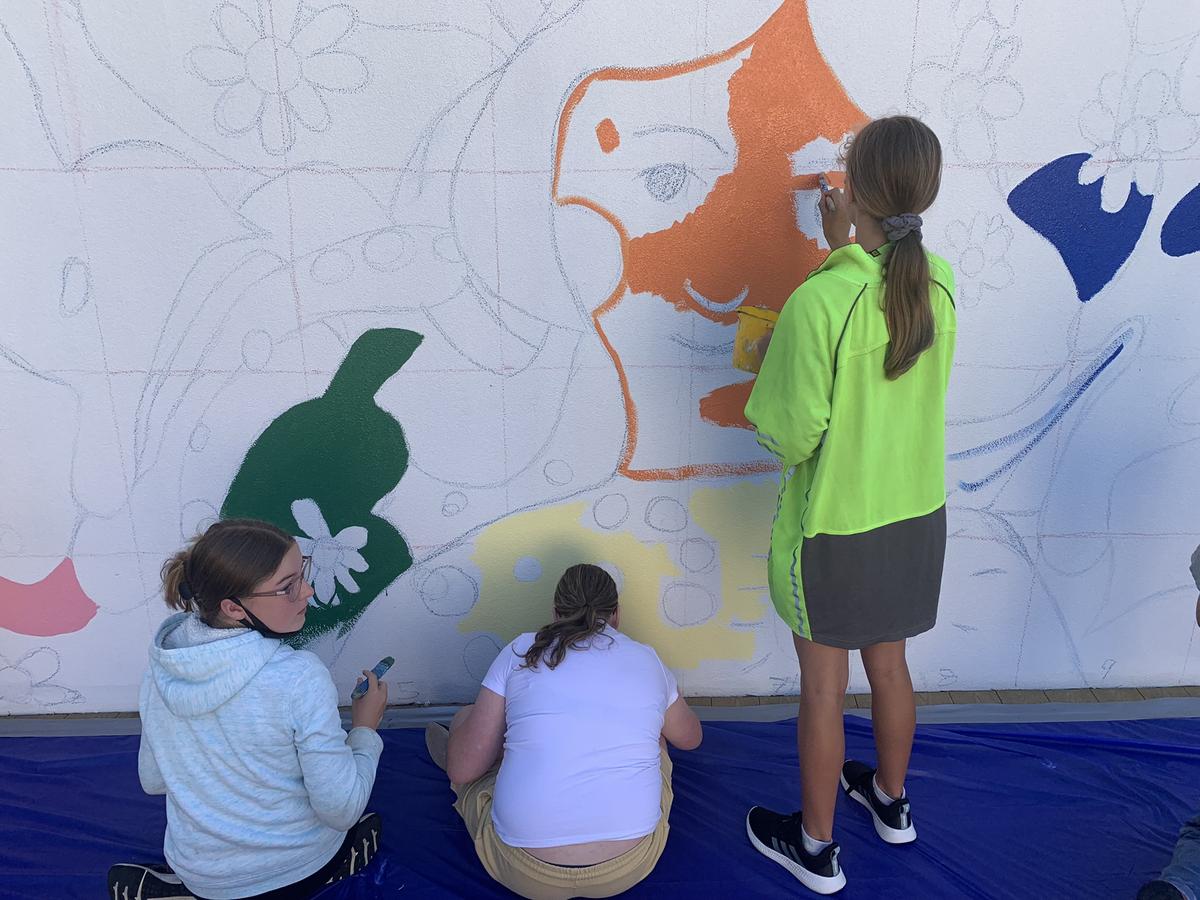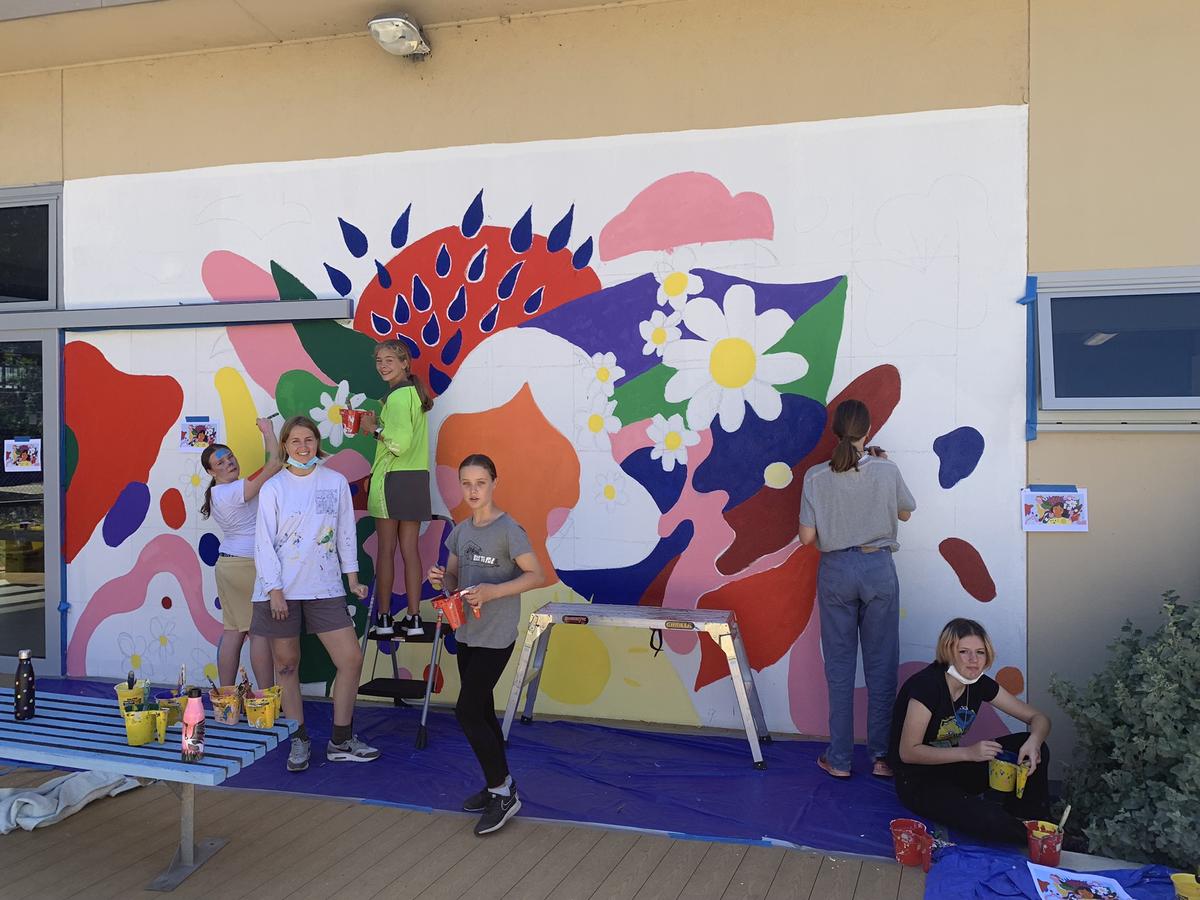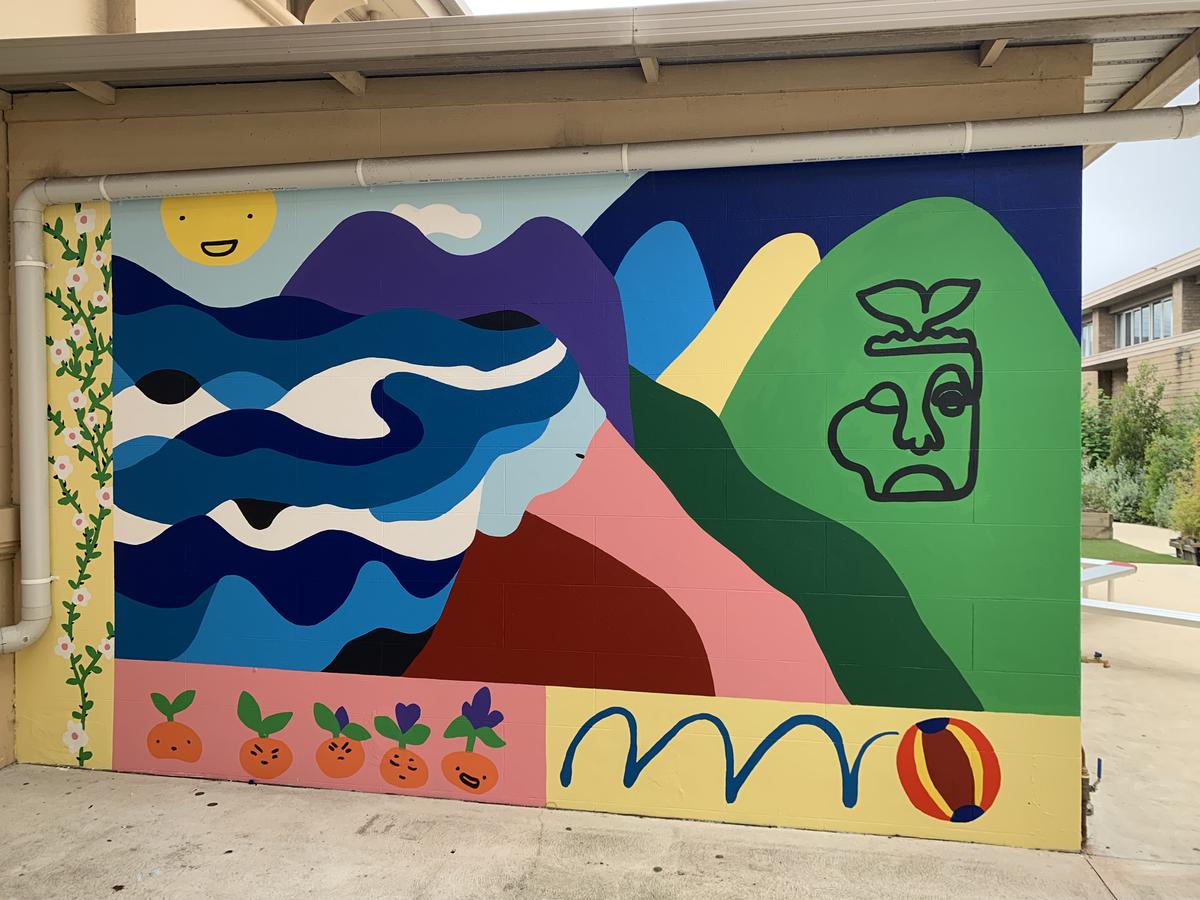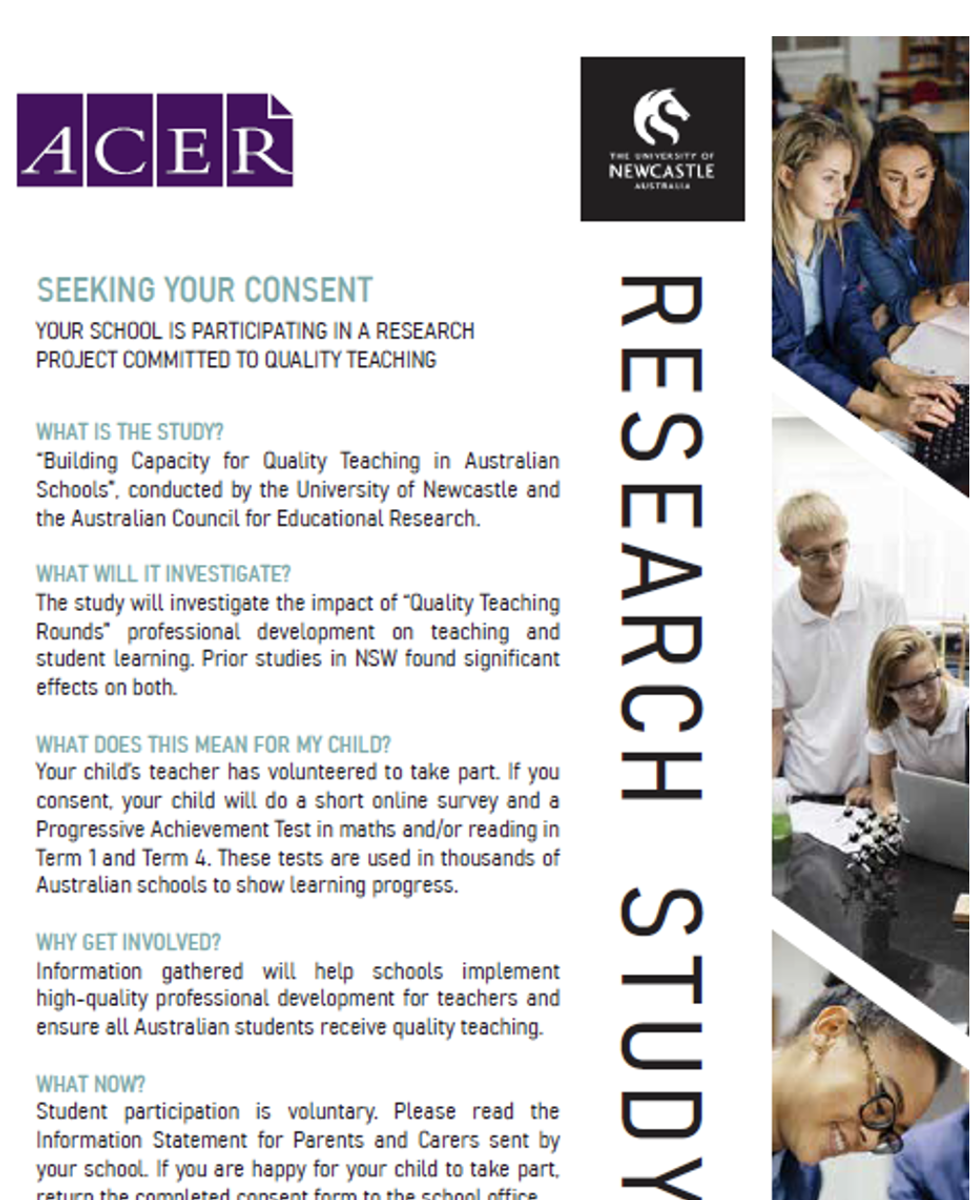Learning and Teaching at MFG

CARLA MCRAE WALL MURAL PROJECT
Melbourne artist Carla Mcrae returned to MFG to work with a group of Year 7, 8 and 12 students on two new Wall Art Murals. Carla designed and painted our House Mural and we were delighted when she agreed to return to MFG and work with our students and involved them from start to finish in the design process.
The brief was to develop an interpretation of two of our MFG traits – ‘Optimistic about the future’ and ‘Resilient, adaptable and able to learn from mistakes’. Carla spent two days working with the students to brainstorm and develop ideas and sketches while enabling them to engage in the creative process that she uses as an artist.
The final murals are alive, colourful and bold and we look forward to working with Carla again!
Quality Teaching Rounds (QTR) Research Project
We are excited that our school will be participating in a new research project into a type of teacher professional development called ‘Quality Teaching Rounds.’
The research is being undertaken by the University of Newcastle.
Four teachers from our school, as well as some of their Year 8 students, will participate. Student participation is entirely voluntary.
Term 1, 2022
| Participant | Activity | Description | Duration
|
| Teachers | Efficacy and wellbeing survey | Online survey asking teachers about their ability to perform different parts of their job, and about their morale and wellbeing.
| 10 mins |
| Students of participating Year 8 Maths/English teachers | Self-efficacy and aspiration survey | Online survey asking students about which parts of school they enjoy and their educational and vocational plans for the future. | 15 mins |
| Progressive Achievement Tests (PATs) | Standard student assessments in maths and reading. | 40 mins each |
Internet Safety week
Digital parenting needs to evolve as children grow so that young people are well prepared to respond safely to harmful online content.
Parents have an important role to play in children’s online lives and evidence shows that their awareness and digital involvement has increased since 2016. But there are still some significant gaps – especially in relation to children’s exposure to potentially harmful online content.
This research explores the opportunities and risks that the internet presents for children in Australia. More than 3,500 young people aged 8 to 17, and their parents, were surveyed during August and September 2021.
The research examined:
- children’s online lives
- what parents know – and don’t know – about their children’s online experiences
- digital parenting practices and the effects on children’s internet use.
It was conducted as part of eSafety's work with Global Kids Online - an international project which creates cross-national evidence about children’s online risks and opportunities.
Results will be used by eSafety to further develop age appropriate resources and messaging for parents and carers to use with their children. This will help them to maximise the benefits of online activities while minimising harm.
Summary of key findings
- Young people engage in a wide range of online activities and experience many benefits from using the internet:
- Many children have gone online for health information, searching for material about mental, physical and sexual health.
- A third of children looked for emotional support online from friends and/or mental health support services.
- Significant numbers of children have had negative online experiences:
- Close to half of the children surveyed were treated in a hurtful or nasty way online in the past year.
- A quarter of the children had themselves treated someone in a hurtful or nasty way online.
- One in ten children have been the target of hate speech online.
- Almost all children did something in response to a negative online experience – most commonly telling their parents.
- Exposure to negative online content and sexual content is prevalent among young people aged 14 to 17 years.
- Many parents underestimate the prevalence of children’s negative online experiences, and many are not aware of their teens’ exposure to negative content or sexual material online.
- Children with restrictive parents are less likely to be exposed to harmful content, but they are also much less likely to engage in supportive and protective online activities.
Damien Toussaint
Assistant Principal, Learning and Teaching
